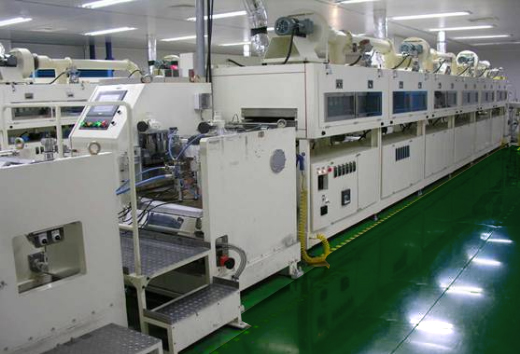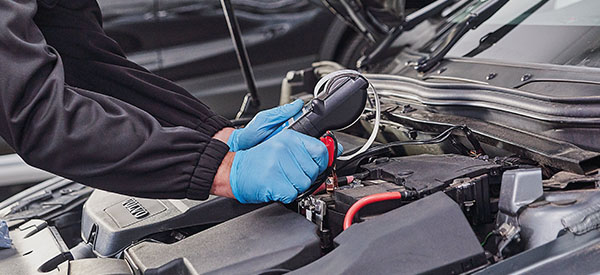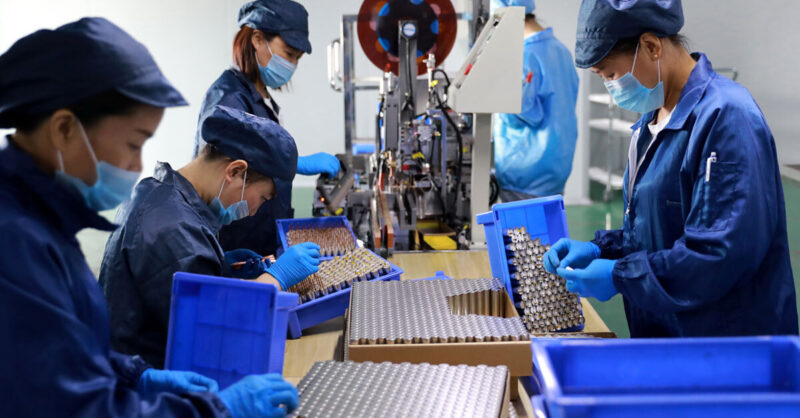How to Choose the Right Starter Battery Supplier for Your Needs
Choosing the right starter battery supplier is essential to ensure that you have access to high-quality products that meet your specific needs. With so many options available, it can be overwhelming to know where to start. Here are some key factors to consider when selecting a starter battery supplier for your needs:
Quality: The quality of the starter batteries offered by the supplier should be your top priority. Ensure that the supplier sources their batteries from reputable manufacturers and that they meet industry standards for performance and reliability.
Price: Price is always an important factor to consider when selecting a supplier. While it is important to find a supplier who offers competitive pricing, be cautious of suppliers who offer unrealistically low prices, as this could indicate poor quality or unethical practices.
Range of products: Consider whether the supplier offers a range of starter batteries to meet your specific needs. Look for suppliers who offer a variety of battery sizes and types, as well as batteries designed for different applications.
Customer service: It’s important to choose a supplier that provides excellent customer service. Look for suppliers who are responsive to your inquiries and concerns and have a reputation for providing timely and efficient support.
Delivery times: Consider the supplier’s delivery times and their ability to meet your specific needs. Look for suppliers who offer fast and reliable shipping, and who have a reputation for meeting delivery deadlines.
Warranty: Check whether the supplier offers warranties on their products. A supplier who offers a warranty demonstrates confidence in their products and provides peace of mind for the customer.
Reputation: Finally, consider the supplier’s reputation in the industry. Look for suppliers who have a track record of providing high-quality products and excellent customer service.
By taking these factors into consideration, you can choose a starter battery supplier that meets your needs and provides you with high-quality products and services.
Time: 2023-3-21
Lithium iron phosphate (LiFePO4) batteries, also known as LFP batteries, have become increasingly popular in recent years due to their long life, high energy density, and excellent safety features. As demand for these batteries grows, the importance of quality control in the manufacturing process becomes even more crucial. In this article, we will explore the reasons why quality control is so important in Lifepo4 battery manufacturing. Ensuring Safety: Lithium batteries have a reputation for being dangerous due to their tendency to catch fire or explode if not properly manufactured. However, Lifepo4 batteries are known for their exceptional safety features. A well-manufactured LFP battery is highly unlikely to catch fire or explode, making it a safe choice for a wide range of applications. However, the key to ensuring this level of safety is proper quality control during the manufacturing process. Consistent Quality: Consistency is a critical factor in battery manufacturing. Ensuring that each battery produced is of consistent quality is important for a number of reasons. Firstly, it ensures that the battery performs as expected, providing the necessary power and energy output. Secondly, it ensures that the battery is reliable, and will not fail prematurely, causing damage to equipment or injury to people. Meeting Customer Expectations: Customers expect high-quality products, and the battery industry is no exception. If a manufacturer produces low-quality batteries, they risk losing customers and their reputation. By implementing strict quality control procedures, manufacturers can meet or exceed customer expectations and build a positive...
Time: 2023-7-11
In the world of healthcare, reliable power sources are crucial for the functioning of medical equipment. From life-saving devices such as ventilators and defibrillators to portable devices like glucose meters and insulin pumps, these tools depend on batteries to ensure proper operation. Among the various options available, lithium batteries have emerged as a popular choice due to their numerous advantages. In this article, we will explore the benefits of using lithium batteries to power medical equipment. First and foremost, lithium batteries offer a high energy density. This means that they can store a significant amount of energy in a compact size. Medical devices often need to be portable and lightweight, making lithium batteries an ideal choice. These batteries can pack a substantial amount of power into a small package, allowing medical equipment to be more portable and convenient for both healthcare professionals and patients. Additionally, lithium batteries have a long lifespan compared to other battery types. They can withstand more charge and discharge cycles before losing their capacity. This is particularly advantageous in healthcare settings where equipment is frequently used and needs to be constantly operational. The long lifespan of lithium batteries reduces the frequency of battery replacements, saving both time and resources for healthcare facilities. Moreover, lithium batteries offer a stable voltage throughout their discharge cycle. This feature is essential for medical equipment as it ensures consistent performance and accurate readings. Unlike other battery technologies that experience voltage drops as they discharge, lithium batteries maintain a...
Time: 2023-4-12
LiFePO4 batteries, also known as lithium iron phosphate batteries, have gained popularity as an alternative to traditional lead-acid batteries. These batteries offer several benefits, including longer lifespan, faster charging, and better performance in extreme temperatures. In this article, we will explore these benefits in more detail. Longer Lifespan One of the biggest advantages of LiFePO4 batteries is their longer lifespan. Traditional lead-acid batteries only last for about 500-700 cycles, while LiFePO4 batteries can last for up to 2000 cycles. This means that LiFePO4 batteries can last up to four times longer than lead-acid batteries. This longer lifespan is due to the chemistry of LiFePO4 batteries. Unlike lead-acid batteries, which rely on a chemical reaction between lead and acid to produce electricity, LiFePO4 batteries use a lithium-ion reaction. This reaction is much more stable and doesn't degrade the battery as quickly over time. Faster Charging Another benefit of LiFePO4 batteries is their ability to charge quickly. Lead-acid batteries can take up to 12 hours to fully charge, while LiFePO4 batteries can charge in as little as two hours. This is because LiFePO4 batteries have a higher charge acceptance rate, which means they can absorb more energy in a shorter amount of time. This is particularly useful for applications that require quick charging, such as electric vehicles, solar power systems, and backup power systems. With a LiFePO4 battery, you can quickly recharge your system and get back to using your power source. Better Performance in Extreme Temperatures...
Time: 2023-6-29
Introduction Powering a boat is crucial for any maritime adventure. Using a reliable energy source is essential to ensure a smooth and enjoyable experience on the water. A cranking marine battery is one such energy source that provides the necessary power to start and run a boat's engine. In this article, we will explore the benefits and features of a cranking marine battery and how it can enhance your boating experience. What is a Cranking Marine Battery? A cranking marine battery is specifically designed to provide high cranking power, enabling the boat's engine to start quickly and efficiently. Unlike regular automotive batteries, marine batteries are constructed to withstand the harsh marine environment, including vibrations, shocks, and corrosive conditions. Benefits of Using a Cranking Marine Battery 1. Reliable Starting Power: The primary function of a cranking marine battery is to provide the necessary starting power. It ensures that the boat's engine starts promptly, even in cold conditions or after long periods of inactivity. 2. Deep Cycle Capability: Many cranking marine batteries also have deep cycle capabilities. This means they can be used to power other accessories on the boat, such as lights, radios, fish finders, and trolling motors. This versatility allows boaters to rely on a single battery for multiple purposes. 3. Durability: Marine batteries are built to withstand the harsh marine environment, including exposure to water, salt, and vibration. They are designed with strong casings and internal components to provide excellent durability and long-lasting performance. ...
Time: 2023-6-20
A deep cycle battery is a type of battery that is designed to discharge a significant portion of its stored energy capacity before being recharged. Unlike regular batteries, which are commonly used in devices that require short bursts of energy, deep cycle batteries are used in applications that require continuous and long-term power supply. These batteries are used in a variety of industries, including marine, automotive, and renewable energy. Deep cycle batteries are made up of multiple cells, each of which contains lead plates that are immersed in an electrolyte solution. When the battery is charged, a chemical reaction takes place between the lead plates and the electrolyte solution, which creates the stored energy. When the battery is discharged, the reverse chemical reaction occurs, which releases the stored energy. One of the main advantages of deep cycle batteries is their ability to withstand frequent deep discharges without damaging the battery. This makes them ideal for applications that require a reliable and long-lasting power source. For example, marine vessels rely on deep cycle batteries to power their electrical systems, including the lights, radios, and navigation equipment. Another advantage of deep cycle batteries is their ability to be recharged multiple times without losing their capacity. This is because the lead plates inside the battery are thicker than those in regular batteries, which makes them more resilient to wear and tear. Additionally, deep cycle batteries can be charged at a slower rate than regular batteries, which reduces the risk of...
Time: 2023-8-23
Off-road riding has always been a thrilling and adventurous sport, with dirt bikes being the vehicle of choice for many enthusiasts. Traditionally powered by gasoline engines, dirt bikes have undergone a remarkable transformation with the introduction of electric models. One of the key components that has revolutionized the off-road riding experience is the lithium battery. The lithium battery has emerged as the power source of choice for electric dirt bikes due to its numerous advantages. First and foremost, lithium batteries are lightweight and compact, making them ideal for off-road riding where agility and maneuverability are crucial. The reduced weight of the battery allows riders to navigate through challenging terrains with ease, enhancing the overall experience. Another significant advantage of lithium batteries is their high energy density. This means that they can store a large amount of energy in a small volume, ensuring longer rides and less frequent recharging. Off-road riders can now explore vast terrains without worrying about running out of power, pushing the boundaries of their adventures. Furthermore, lithium batteries have a higher charge retention capability compared to other battery types. They can retain their charge for longer periods, minimizing the self-discharge rate. This is particularly beneficial for riders who engage in sporadic off-road trips, as they can be confident that their electric dirt bike will be ready for action whenever they decide to hit the trails. One of the most significant advantages of lithium batteries is their fast charging capabilities. With advancements in technology,...
Time: 2023-8-9
With the increasing concerns about environmental pollution and the need for sustainable modes of transportation, electric vehicles have gained significant popularity in recent years. While electric cars have dominated the market, there has been a rising demand for electric bikes as well. Among these, electric dirt bikes have caught the attention of enthusiasts and adventurers alike. One of the key factors contributing to the success of these bikes is the high-performance lithium battery that powers them. The lithium battery is the heart of any electric vehicle, and its efficiency plays a crucial role in determining the overall performance of the bike. In the case of electric dirt bikes, the need for a powerful and long-lasting battery is even more critical due to the demanding conditions these bikes encounter. To meet these requirements, manufacturers have turned to advanced lithium batteries. The high-performance lithium battery used in electric dirt bikes is designed to provide maximum power output while minimizing weight and size. These batteries utilize lithium-ion technology, which offers significant advantages over traditional lead-acid batteries. Lithium-ion batteries have a higher energy density, allowing them to store more energy in a smaller and lighter package. This feature is particularly important in dirt bikes, where weight and size can impact maneuverability and performance. Additionally, lithium-ion batteries have a higher charge retention capacity compared to lead-acid batteries. This means that even after long periods of inactivity, the battery retains a significant portion of its charge, ensuring the bike is always ready to...
Time: 2023-8-18
Introduction: The battery industry has experienced significant advancements in technology and sustainability in recent years. These breakthroughs have revolutionized various sectors, including consumer electronics, electric vehicles, and renewable energy. This article will explore the latest developments in battery technology and the efforts towards creating more sustainable and eco-friendly batteries. 1. Lithium-ion Batteries: Lithium-ion batteries have become the dominant technology in portable electronics and electric vehicles due to their high energy density and long lifespan. Researchers have made significant progress in improving the performance of these batteries by developing advanced electrode materials and optimizing the electrolyte composition. These advancements have resulted in higher energy capacities, faster charging times, and increased safety. 2. Solid-State Batteries: Solid-state batteries are emerging as a potential replacement for lithium-ion batteries. Unlike traditional batteries, which use liquid electrolytes, solid-state batteries employ solid electrolytes. This innovation offers several advantages, including improved safety, higher energy density, and longer lifespan. Moreover, solid-state batteries are less prone to overheating and have a reduced risk of catching fire, making them ideal for electric vehicles and other high-demand applications. 3. Sodium-ion Batteries: While lithium-ion batteries have dominated the market, researchers are exploring alternative materials due to concerns around lithium availability and cost. Sodium-ion batteries have gained attention as a potential substitute. Sodium is more abundant and widely distributed compared to lithium, making it a more sustainable choice. Although sodium-ion batteries are still under development, scientists are making progress in improving their performance and cycle life. 4. Redox Flow Batteries:...





















